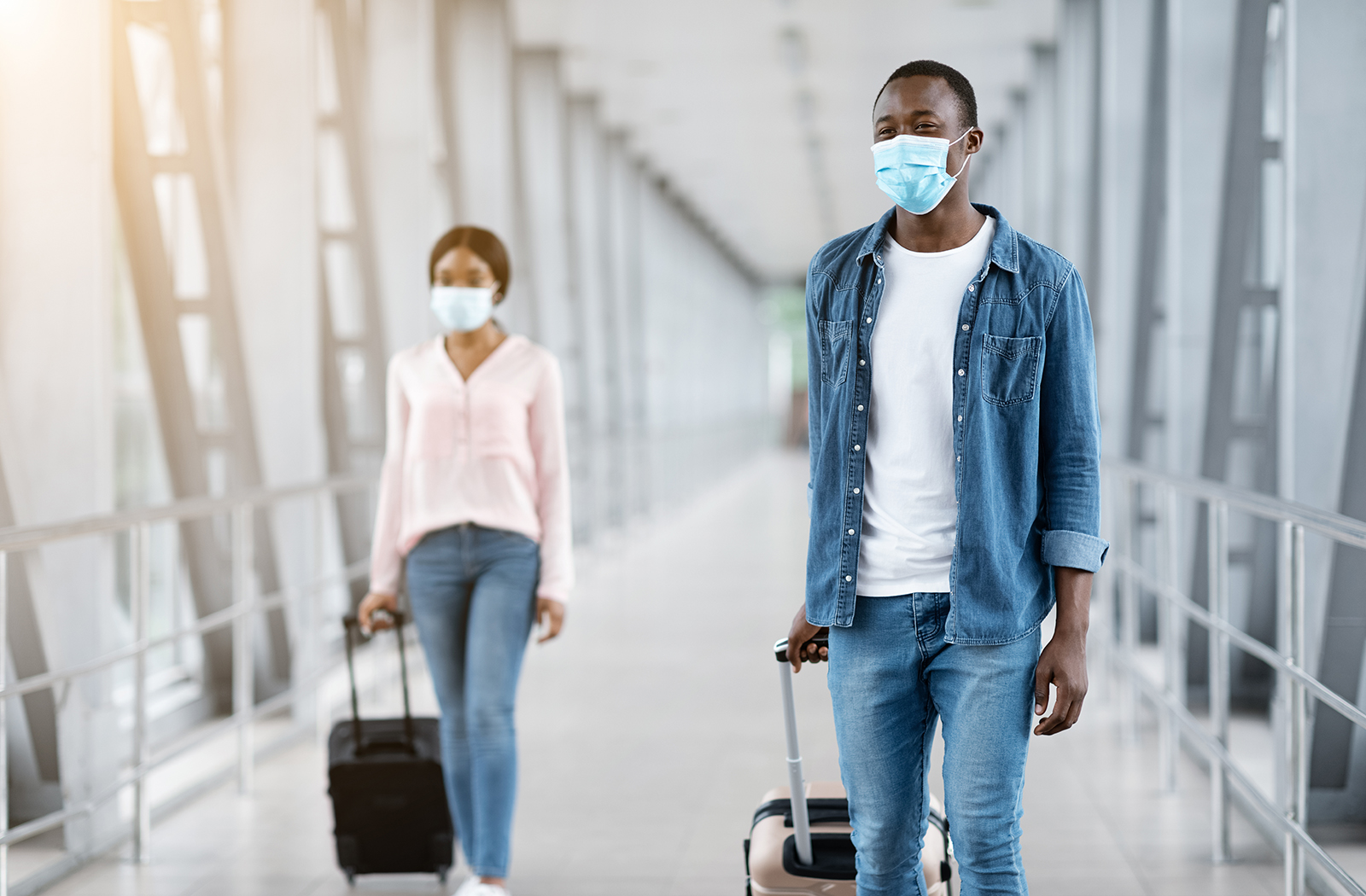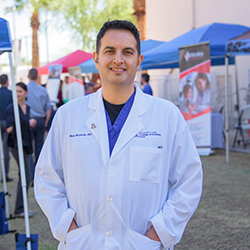
Physician Discusses COVID-19 and the Safety of Traveling During the Holidays

As the United States faces another surge in coronavirus cases and hospitalizations, health experts are urging Americans to reconsider their holiday travel plans.

Is traveling by plane safe with the pandemic?
As we are breaking records in terms of hospitalizations and new cases, it really is not as safe as it was a couple of months ago to travel by plane, train or bus. Driving on a road trip is the safest followed by self-quarantine for 14 days or testing at least twice within a seven-day span to make sure you do not have the virus.
I would recommend limiting air travel to only necessary trips. If you feel you must travel, it is best to go on airlines that keep the middle seat empty and that reduce the number of people within six-feet of you. Also, it is best to wear a mask at all times and a face shield or goggles.
Is it safe to rent an Airbnb and stay in hotels?
An Airbnb can be safe provided the locations follow safety standards, and there are at least four hours separating the time when you are going inside and anyone else being in the house. Hotels are the same concept; not sharing ventilation with other rooms and having separate ventilation is also important. If you stay at a hotel, I would wear a mask at all times outside of your room and do not go in an elevator with anyone who is not staying with you. Of course, wash and sanitize hands when touching surfaces like door knobs and buttons on elevators before touching your face.
What precautions should individuals take when traveling?
Wear masks and face shields if traveling in a bus, airplane or train. I recommend having hand sanitizer on hand and wipes. Remember to wash hands frequently and keep your distance from others as much as possible.
If staying with family this holiday season, is there a safe way to gather?
There really is no risk-free way to gather. You can reduce the risk by all quarantining for 14-days prior to getting together as possible or testing multiple times if traveling from one destination to another and taking all precautions. Also, when you do gather, spend time outdoors as much as possible with masks and distancing.
Should you be asking family members if they’ve quarantined?
Yes, absolutely. You want to know how exposed other family members are and if they are taking it as seriously as you are in terms of wearing masks and following all the best public health guidelines. Remember you are only as safe as the most exposed person in your group.
Are we going to see an increase in cases after the holidays?
We are most likely going to see a continued increase of cases, like we are seeing around the country right now, unless new mitigation measures are put in place like mask mandates and targeted restrictions on indoor activities. The extent to which people are careful and avoid gathering in-person or inside will determine whether we will see a holiday bump outside of other changes that may happen with public health laws.
What is the best way to keep family members with chronic conditions safe, but still make them included in the celebration?
Utilize virtual platforms as much as possible with video calls and phone calls. Also, consider visiting them outside at a distance as possible with masks, so you can at least be in each other's physical presence safely.
There are places offering 15-minute rapid COVID tests: should family members wanting to gather do this?
Yes, this can be helpful, but not if you are highly exposed and it is not done repeatedly to make sure you are actually diagnosed correctly. Remember these tests are less accurate, but when they are positive you are contagious, this can change within a few days so rechecking is important.
Anything else to add?
There is much we can do to boost our immunity and reduce our risk by investing in our health with lifestyle changes and healthy eating. Eating more plants, getting adequate rest and exercising can all help. If you are overweight, losing a few pounds will also reduce your risk of severe illness from COVID-19 infection. Additionally, vitamin D deficiency is a risk factor for serious illness with a COVID-19 infection, so check your levels and start supplementing as indicated. Also consider zinc and vitamin C as supplements. Ask your doctor about other potential supplements and practices. If you have a chronic disease like high blood pressure or diabetes and high blood sugar, get it under control with diet, exercise and medications. The healthier you are going in, the more likely you are to do well and survive without harm.
About the College
Founded in 2007, the University of Arizona College of Medicine – Phoenix inspires and trains exemplary physicians, scientists and leaders to advance its core missions in education, research, clinical care and service to communities across Arizona. The college’s strength lies in our collaborations and partnerships with clinical affiliates, community organizations and industry sponsors. With our primary affiliate, Banner Health, we are recognized as the premier academic medical center in Phoenix. As an anchor institution of the Phoenix Bioscience Core, the college is home to signature research programs in neurosciences, cardiopulmonary diseases, immunology, informatics and metabolism. These focus areas uniquely position us to drive biomedical research and bolster economic development in the region.
As an urban institution with strong roots in rural and tribal health, the college has graduated more than 1,000 physicians and matriculates 130 students each year. Greater than 60% of matriculating students are from Arizona and many continue training at our GME sponsored residency programs, ultimately pursuing local academic and community-based opportunities. While our traditional four-year program continues to thrive, we will launch our recently approved accelerated three-year medical student curriculum with exclusive focus on primary care. This program is designed to further enhance workforce retention needs across Arizona.
The college has embarked on our strategic plan for 2025 to 2030. Learn more.